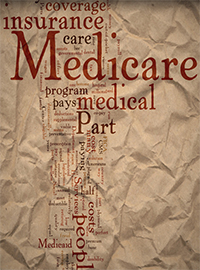| Medicare-for-All is Not the Solution for ObamaCare’s Problems |
 |
|
By Ashton Ellis
Wednesday, October 22 2014 |
More than 7 million Americans have had almost a year to experience affordable health insurance under ObamaCare. Many want out. A recent New York Times piece explains the plight of Patricia Wanderlich, a 61 year-old resident of Chicago who suffered a brain hemorrhage in 2011. She needs an annual brain scan to monitor whether the damage from the hemorrhage and a subsequent aneurysm is getting worse. Unfortunately, Wanderlich’s annual deductible is $6,000, meaning she is responsible for paying for most of her medical expenses up to that threshold. As a part-time worker, she can’t afford it. “To spend thousands of dollars just making sure it hasn’t grown?” she asks the Times. “I don’t have that money.” So, Wanderlich is “skipping this year’s brain scan and hoping for the best,” says the paper. It’s gotten so bad that Wanderlich avoids preventive care, fearing that a routine check-up will trigger expensive tests and treatments she needs but can’t afford. Others are profiled, such as a middle-aged woman in Nashville who endured an ear infection over the summer rather than pay for a costly doctor’s visit. She eventually landed a job with health benefits and promptly canceled her ObamaCare plan. The conclusion to Wanderlich’s story isn’t so cheery. “A $6,000 deductible – that’s just staggering,” she tells the paper. “I never thought I’d say this, but how many minutes until I get Medicare?” Imagine Wanderlich’s story millions of times over. When the promise of low-cost, high-quality health care fades, many people will look to the government to meet their needs. And it’s not like Medicare is cheap. Begun in 1965 to cover the medical expenses of people 65 and older, as well as those with permanent disabilities, Medicare is one of the biggest line items in the federal budget. As of 2013, Medicare spending accounted for 14 percent of the federal budget, according to the Kaiser Family Foundation. It also funds “20 percent of total national health spending, 27 percent of spending on hospital care, and 23 percent of spending on physician services.” In 2013, total Medicare benefit payments equaled $583 billion. Medicare spending is projected to increase consistently to $839 billion by 2024. Frustration with ObamaCare’s bait-and-switch of low premiums and high deductibles is causing some liberals to demand a so-called “Medicare-for-All” solution. Supporters of expanding Medicare to cover all Americans include economists Paul Krugman and Robert Reich, as well as U.S. Senator Bernie Sanders (I-VT). Sanders, a self-described socialist who caucuses with the Democrats, introduced the American Health Security Act in 2013. If passed, the Act would use ObamaCare as a tool forcing states to adopt single-payer health insurance systems. Like Medicare, Sanders’ Act would be a federally directed program. Going a step further, it would enroll every American, creating a truly nationalized health system. Sanders’ home state of Vermont is already in the planning process. Don Berwick, a former Obama administration official and recent Massachusetts gubernatorial candidate, made going from RomneyCare to single-payer his signature campaign issue. Related efforts are underway in California, Minnesota, Oregon and Washington. In press releases and op-eds, Sanders repeatedly calls for “the United States to provide a Medicare-for-all single-payer health coverage program.” He claims the move would simultaneously reduce costs and improve access to care. More likely, imposing a Medicare-for-All scheme will result in rationing care as a way to rein in costs. This maintains the façade that coverage equals access. Meanwhile, people don’t get the care they need. We’ve heard all this before with ObamaCare. The whole point of the controversial health reform law was to give millions more Americans access to less expensive health insurance. What it delivered instead was sticker shock. It’s easy to see why people like Patricia Wanderlich think that getting access to Medicare solves one’s health spending problems. But ultimately those who lose under ObamaCare will also fail to get adequate service under an expanded form of Medicare. |
Related Articles : |
























